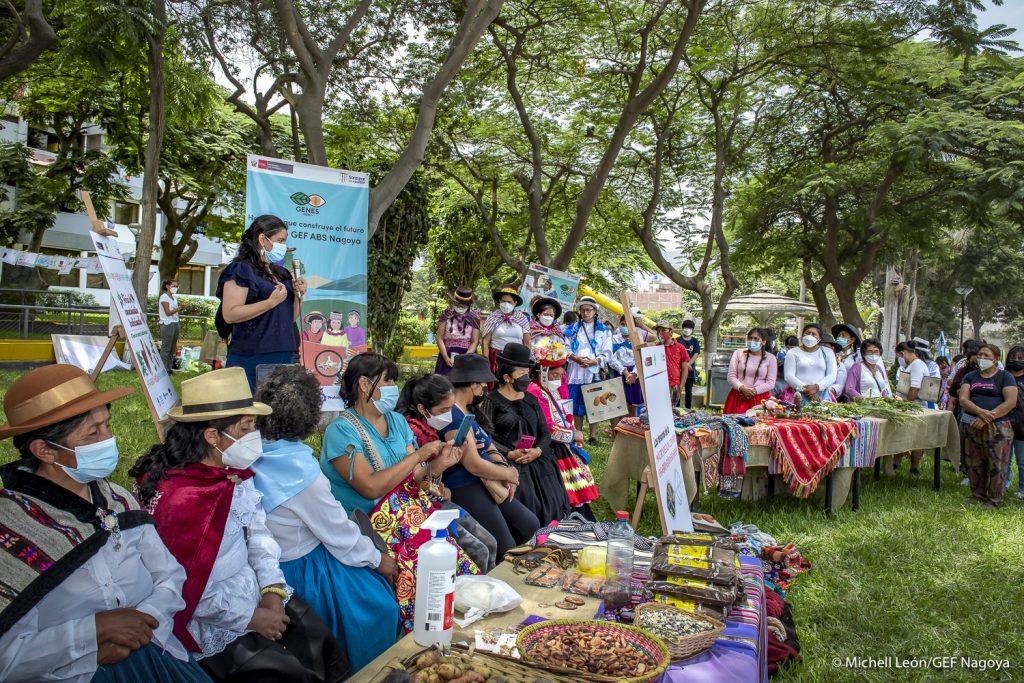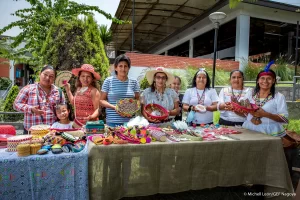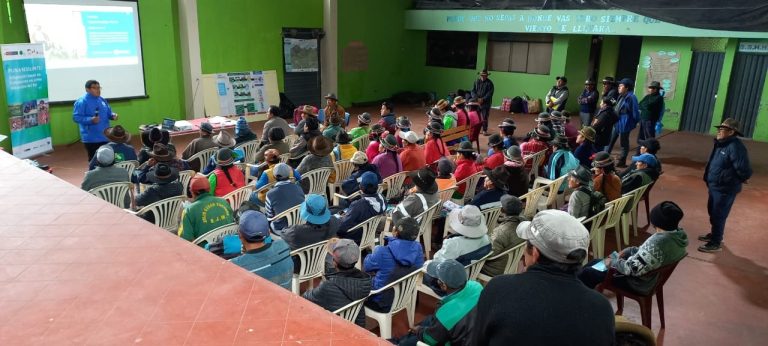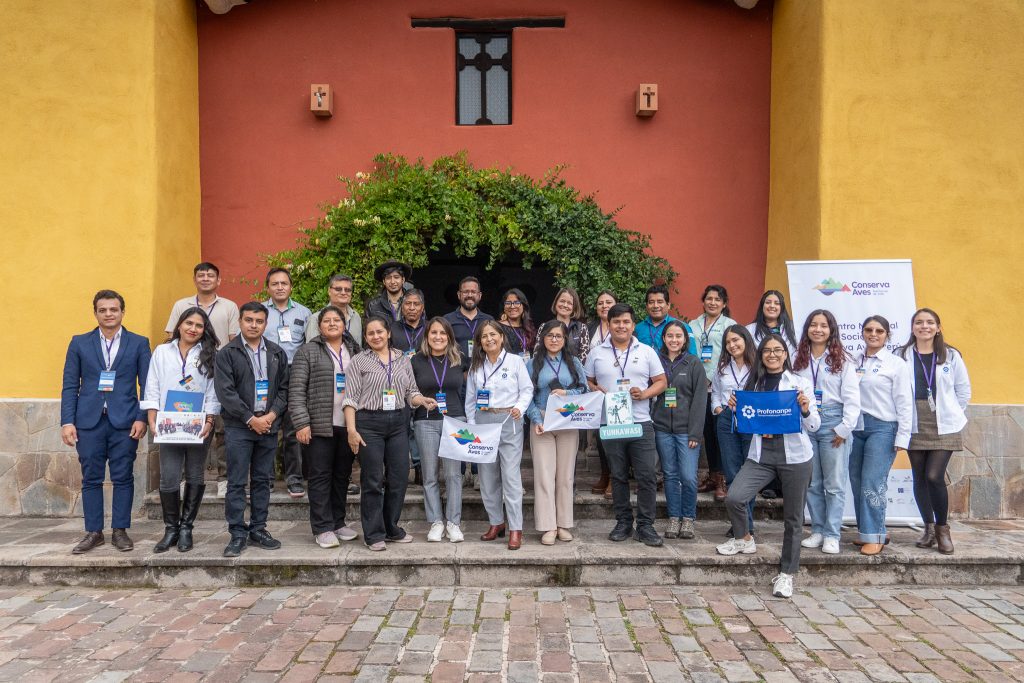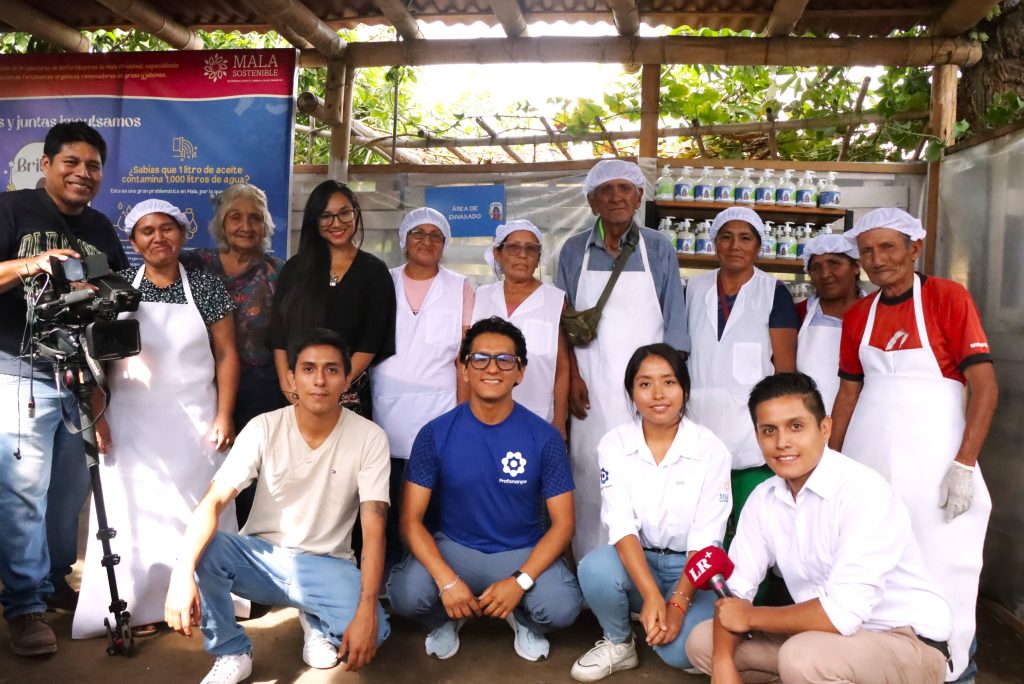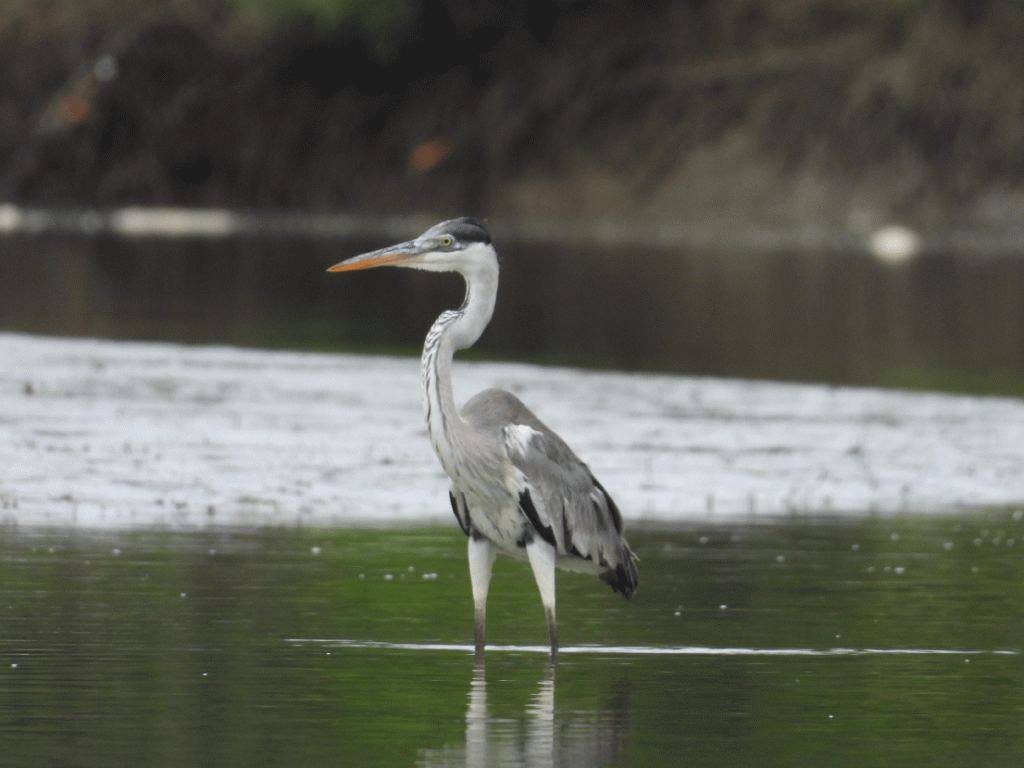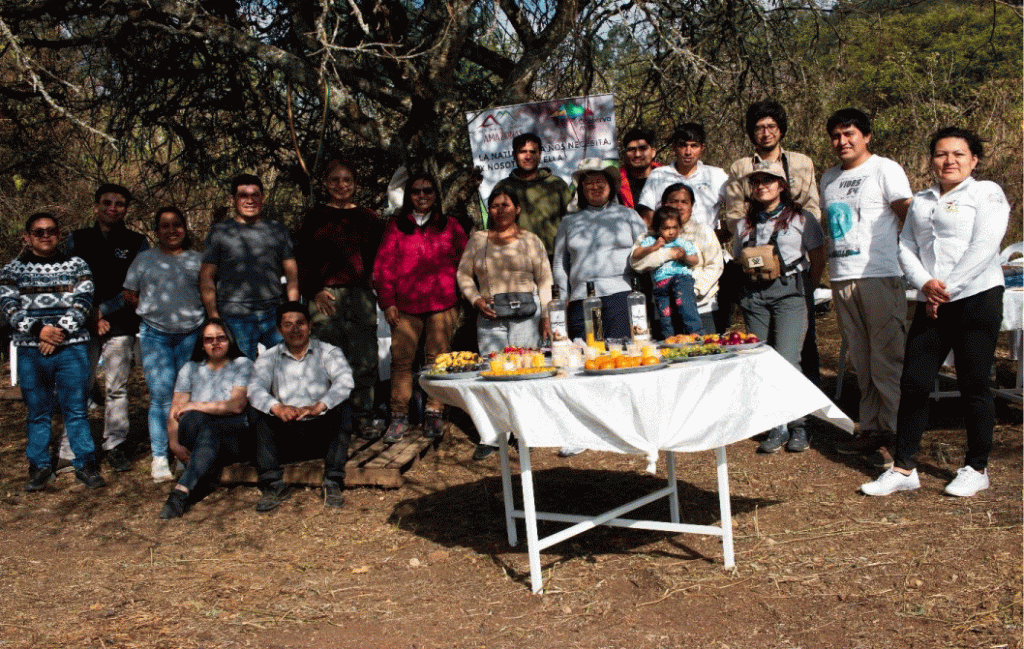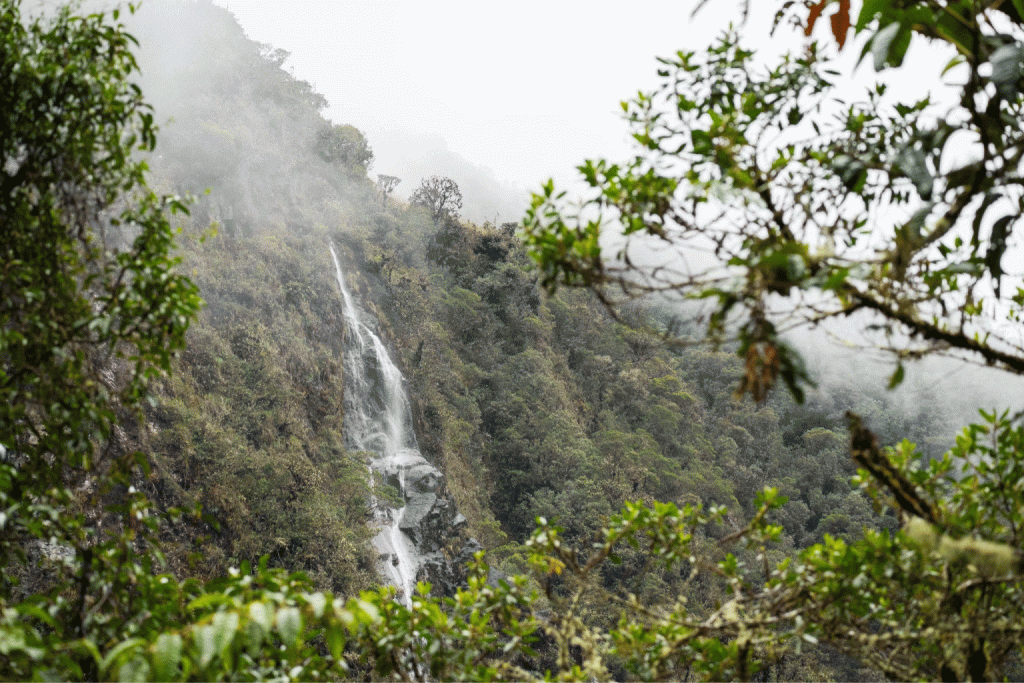Karina Ramírez, national coordinator of the GEF ABS Nagoya Project, speaking to attendees at the fair.
On March 4 and 5, the “Treasures of Biodiversity” fair was held, in which each participant demonstrated the importance of transmitting to future generations their understanding of biodiversity conservation for human well-being in the country. The participation of women in the conservation, transmission and preservation of traditional knowledge related to the sustainable use of biodiversity was also highlighted, an example of which is the valuable knowledge on the use of medicinal plants treasured from generation to generation by the native peoples of our country.
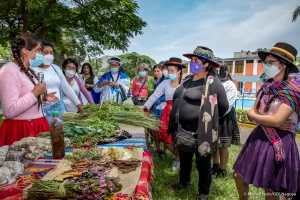
Vilma Ucharico explaining the medicinal plants she works with.
Traditional knowledge, developed from experience
Hilaria Huamán, from the city of Urubamba, Cusco, commented to the group of women that, “between February and March, during rainy season, the women of my community organize ourselves to collect the panti flower (from the Quechua “panty”), which only blooms at this time of year, so we collect some flowers and dry them for use throughout the year, because it relieves colds, flu and stomach aches caused by the cold at high altitudes.” These are acquired customs that go from generation to generation, practices as old as “even from the time of the Incas,” says Hilaria.
Vilma Ucharico, native of the city of Llave in Puno, mentioned that since childhood she was motivated to learn about medicinal plants, “it was necessary because I had to help my mother, who was suffering from a serious illness.” Today, at 22 years old, she knows a lot about plants and has become her family’s doctor since everyone comes to her. With a shy appearance, Vilma lights up when she holds the “bundle” of plants in her hands and, with confident, comments on each of their properties, from where they grow to how they are used in her community to alleviate some illnesses.
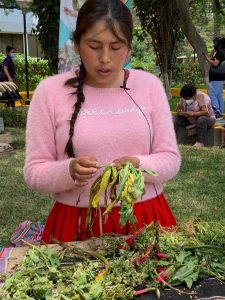
Vilma Ucharico
This action was promoted by the GEF-ABS-Nagoya Project in conjunction with the National Federation of Peasant, Artisan, Indigenous, Native and Salaried Women of Peru (FENMUCARINAP). Indecopi also participated in the event, providing important information on the Intercultural Guides prepared within the framework of Law 27811 as a tool for the protection of traditional knowledge.
Fair exhibitors
About the GEF-ABS-Nagoya Project:
The objective of the project is to strengthen national capacities for the effective implementation of regimes for access to genetic resources (ABS) and traditional knowledge (TK) in accordance with the Nagoya Protocol, and to contribute to biodiversity conservation and human well-being in the country. This project is executed by the Ministry of Environment of Peru with resources from the Global Environment Facility (GEF) and has Profonanpe, the Peruvian Environmental Fund, as a strategic partner.


